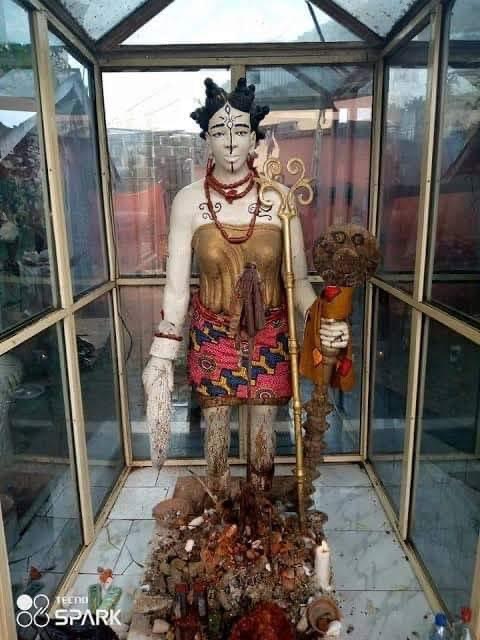Anaedo as a Name Does Not Belong to Nnewi Citizens Alone
By Ikenga Ezenwegbu
Nnewi, Nigeria – The assumption that the name “Anaedo” exclusively belongs to Nnewi citizens has been challenged, unveiling a shared cultural heritage among the communities of Nnewi, Oraifite, and Ichi in Anambra state.
Anaedo, also known as Edoland, encompasses these three villages that have transformed into towns over time. The origin of the name can be traced back to Edo, a woman who was married to Agbaja and gave birth to Ikenga, the forefather of Nnewi, Oraifite, and Ichi. Edo hailed from Abatete in the Idemili area of Anambra state.
Edo’s exceptional care and devotion to her children led them to deify her after her passing. It is believed that she appeared to them in dreams, instructing the construction of shrines in her honor and dictating the manner of worship. Her commandments and teachings, known as “nsọ Edo,” solidified her status as a revered deity, while Agbaja, their father, remained a mortal figure.
Agbaja’s name is not commonly associated with shrines, apart from the Agbaja Customary Court established by colonial master Major Moorehouse in 1906, located in Umudim, Nnewi. This story serves as a lesson, highlighting the enduring significance of mothers. In the long term, children tend to exalt and revere their mothers instead of their fathers.
Mothers have held a position of supreme importance since time immemorial, exemplified by the meaning of “Nneka,” which translates to “mother is supreme.” Guided by divine instructions or driven by love, Agbaja’s children elevated their mother, Edo, to the position of a supreme deity within their respective communities, which have now grown into towns.
Etymologically, “Ana” in Anaedo signifies “the land,” while “Edo” represents the mother of Ikenga, Oraifite, and Ichi. However, in contemporary understanding, Edo is primarily recognized as a deity rather than an individual who once lived. The primary Edo shrine is situated in Nnewi, particularly near the renowned Nnewi Motor & Motorcycles Spareparts Market.
Remarkably, this market is located on Agbọedo, Edo’s virgin forest. The term “Agbọ” refers to a “thick virgin forest” typically associated with deities.
It is noteworthy that after Edo’s deification, she entered a divine union with another deity named Ezemewi. The shrine dedicated to Ezemewi can be found in Orie Agbọ, within the present-day Abubor Nnewichi. The path connecting Edo and Ezemewi, known as Edo-Ezemewi Road, remains preserved and now accommodates numerous commercial banks in Nnewi.
Marriage to a partner concludes on Earth, as validated by the European saying, “till death do we part.” Anaedo represents Edoland, encompassing the entire land inhabited by the descendants or children of Edo, including Nnewi, Ichi, and Oraifite.
It is important to note that Ikenga had many children, including Isu and Nnewi. Isu was initially the firstborn of Ikenga but was eventually succeeded by Nnewi. The children of Ikenga are now encompassed within the Nnewi town.
Hence, Anaedo refers to Nnewi, Oraifite , and Ichi as a collective entity, reflecting their shared cultural heritage. While Edo was deified, every citizen of Nnewi, Oraifite, and Ichi retains a connection to Edo, emphasizing that Anaedo should not be misconstrued as idolatry but rather as a motherland.
Furthermore, the practice of answering to the mother’s name is still prevalent in some aboriginal Anaedo lineages, where extended families, known as Ụmụnna, are called by their mothers’ names. For instance, the ruling Ụmụnna in Otolo and Nnewi is referred to as Ụmụonyebuchi, named after their mother, Onyebuchi. Similarly, the renowned Ụmụnwakanwa family derives its name from their mother, Nwakanwa. These women were among the many wives of Ezeoguine, the late Obi of Nnewi, from whom Igwe Orizu III and the author, Ikenga Ezenwegbu, descended.
Irrespective of religious inclinations, all descendants of Edo are addressed as Ụmụ Anaedo, symbolizing their shared heritage with Edo, their caring ancestor.
This historical account serves as a vital narrative to be preserved and imparted to future generations, reinforcing the rich cultural legacy of Anaedo.
For inquiries or further information, please contact Ikenga Ezenwegbu at anayonwosu@icloud.com.

